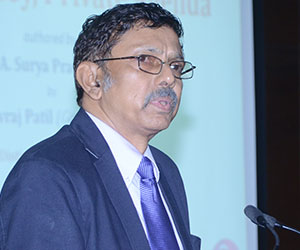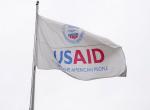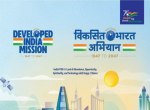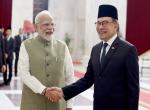The declining image of the United Progressive Alliance government in the context of mounting corruption charges, signs of non-governance and dramatic shifts in political allegiances have all added up to render the United Progressive Alliance Government headed by Mr. Manmohan Singh vulnerable and shaky at the resumption of the Budget Session of Parliament after a three-week recess.
In this milieu, the most worrying aspect is the growing backlog of legislation awaiting parliamentary clearance. Around 40 bills are pending consideration and passage in the two Houses of Parliament and another two dozen new bills are ready for introduction. Among the pending bills are the controversial Lokpal and Lokayuktas Bill, 2011, the Judicial Standards and Accountability Bill, 2010, the Whistle Blowers Protection Bill, 2011, the Nuclear Safety Regulatory Authority Bill 2011, the Education Tribunals Bill, 2010, The Central Educational Institutions (Reservation in Admission) Amendment Bill, 2010 and The Right of Children to Free and Compulsory Education (Amendment) Bill.
Although many important legislative measures are awaiting parliamentary approval, the ruling coalition is woefully short on confidence because of the poor showing of the Congress Party in the recent assembly elections in five states and the increasingly fractious nature of the coalition. In this atmosphere of uncertainty, the government should consider itself lucky if it can see through the budgetary process without a hitch. Although dozens of bills are pending parliamentary approval, law-making may become the biggest casualty in the current session and in the coming sessions of the present Lok Sabha, given the precarious numbers and the UPA’s woefully inadequate floor management. The Finance Minister Mr. Pranab Mukherjee will have to deploy all his PR skills to garner enough support in parliament to push through legislation critical to the continuance of the economic reform process. Among them are The Pension Fund Regulatory and Development Authority Bill, 2011, The Insurance (Amendment) Bill and The Banking Laws (Amendment) Bill, 2011. He has already extracted an assurance from the Bharatiya Janata Party (BJP) that it will support the pension bill, but this is small comfort for a government that is under attack from all sides.
As it turned out, the government was on tenterhooks even in the first part of the Budget Session from March 12 to 30, before the two Houses went into recess. During that phase, the government faced considerable embarrassment over the Railway Budget when Ms. Mamata Banerjee protested against the fare hike and forced the resignation of Mr. Dinesh Trivedi and the appointment of another MP from the Trinamul Congress as the Railway Minister. Although the Railway Budget had the approval of the Prime Minister and the entire cabinet, Dr. Manmohan Singh had to swallow his pride, sack Mr. Trivedi as per the dictates of Ms. Banerjee and roll back the marginal fare hikes announced by the Railway Minister in his budget speech. But all this happened before the state assembly election results came in on April 6. The humiliating performance of the Congress Party in Uttar Pradesh and Goa and its defeat in Punjab has rendered it much weaker.
Thus, when Parliament resumed last week, a weaker Congress Party had to face fresh threats and challenges from its coalition partners. Ms. Banerjee has already taken two initiatives which should be cause for worry for the UPA. The first of these is her willingness to enter into consultations with the Samajwadi Party in order to find a suitable candidate for the office of President. The Samajwadi Party has made it known that the two parties are thinking of Dr. Abdul Kalam for the office once again. This way the Trinamul Congress, which is inside the UPA and the Samajwadi Party, which is offering support from outside, have pre-empted the Congress and taken an initiative. Also joining them to give the Congress Party some anxious moments is Mr. Sharad Pawar, leader of the Nationalist Congress Party, who has been making some vague observations about the qualifications expected of the next President. Though the election of President is due in July, the politics surrounding this election is already begun and for the moment it has unsettled the Congress Party. As if this is not enough, Ms. Banerjee has also announced a 15-day deadline for a central “package” for West Bengal, failing which she may even threaten to unsettle the coalition.
Given the precarious strength of the ruling coalition in the Lok Sabha and the whimsical ways of some of its constituents, the UPA will have to go out of the way to appease the opposition in order to have its way in Parliament. The position of the ruling coalition in the Rajya Sabha is even more precarious. The Congress has 70 MPs in the 245-member House and the UPA is at least a dozen short of a majority. It can get bills passed in that House only if it reaches an honourable understanding with the opposition parties. Following the moves made by the Samajwadi Party and the Trinamul Congress vis-à-vis the election of President, there is even talk that the Congress Party may do the unthinkable - sound the BJP on a possible arrangement regarding election of President and Vice-President in July and August this year, is order to deal with its recalcitrant allies.
The government will also come under severe attack during the session on two counts. The first is the issue of establishing the National Counter Terrorism Centre (NCTC). The union government unilaterally decided to set up the centre and arm it with powers of search and seizure all over the country. Several state governments starting with Odisha, Gujarat, Tamil Nadu and even West Bengal cried foul and said it violated the spirit of federalism. Under the Constitution, police and maintenance of law and order is the prerogative of the state governments and this is zealously guarded by the states. The states complain that the Union Home Ministry is trying to usurp some of these powers in the garb of fighting terrorism. The Centre’s stand is that the powers of the states have not been compromised. However, following widespread protests from states including those run by UPA constituents, the Centre had to beat a hasty retreat. A special meeting of chief Ministers has now been called in the first week of May to resolve this issue. The other issue on which the union government will be pilloried by all and sundry is the Lokpal and Lokayukta Bill. Though the bill was passed by the Lok Sabha, it ran into rough weather in the Rajya Sabha. If the government wishes to redeem itself in the eyes of the people who want firm anti-corruption measures, it will have to convince its allies and other parties and get the bill passed in the Upper House. Otherwise, this will become yet another black mark as far as the UPA is concerned.
Finally, as if all this is not enough, things have begun to look gloomy on the economic front. The global ratings agency Standard & Poor's has revised the outlook on India's long term sovereign rating to 'negative' from 'stable'. The decline in the country’s growth figures, the high fiscal deficit, the slow down on the economic reforms front and the country’s growing debt burden are said to be reasons for the downgrade that could impact foreign direct investment and the general global view of India’s economic strength. While one section of the government is keeping up a brave front – like Mr. C. Rangarajan, Chairman, Prime Minister’s Economic Advisory Council – that Standard and Poor’s will soon reverse and even “upgrade” India’s long term credit outlook, there are others who are less optimistic.
The government’s Chief Economic Advisor, for example, has virtually spilled the beans by talking about the difficulties in continuing economic reforms in the present political environment. Although he has sought to repair the damage done by initial reports about his speech at an academic institution in the U.S, the word has gone around that the UPA suffers from policy paralysis. In order to prove critics wrong, Mr. Pranab Mukherjee will go all out to secure parliamentary approval for the bills pertaining to pensions, insurance and banking. Further, the government will have to take a call on some controversial decisions like partial decontrol of diesel price, review of subsidies and FDI in retail, which has been put on hold because of opposition from coalition partners.
By any reckoning, it is clear that the UPA will only wobble along from now on until a fresh Lok Sabha election is held. Given the signals from West Bengal and Uttar Pradesh and from constituents like Mr. Sharad Pawar, this could well happen ahead of May 2014 when it is actually due. We will have to wait and see.
Author is Senior Fellow at Vivekananda International Foundation
Published Date: 30th April, 2012










Post new comment